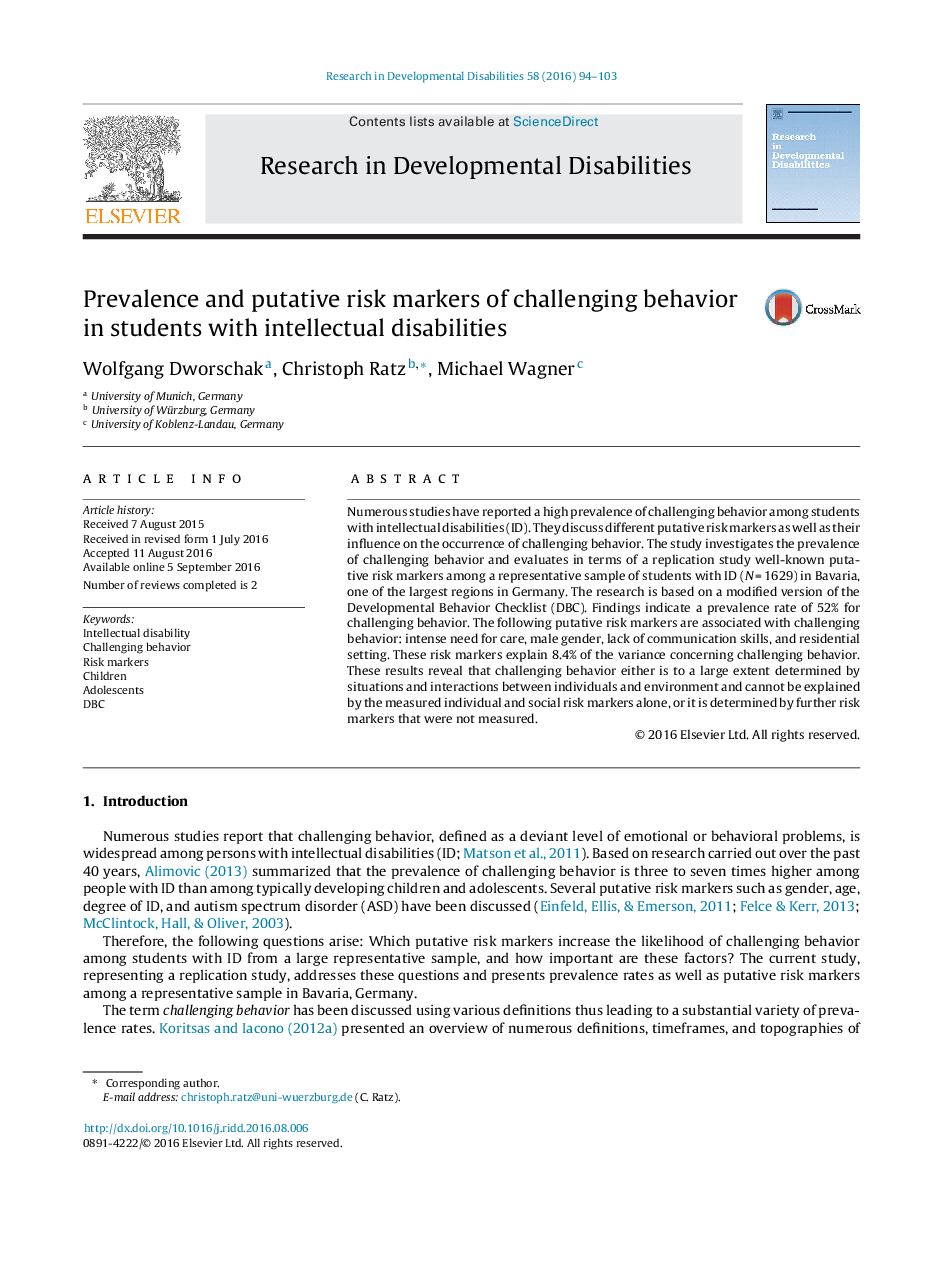| Article ID | Journal | Published Year | Pages | File Type |
|---|---|---|---|---|
| 4941216 | Research in Developmental Disabilities | 2016 | 10 Pages |
Abstract
Numerous studies have reported a high prevalence of challenging behavior among students with intellectual disabilities (ID). They discuss different putative risk markers as well as their influence on the occurrence of challenging behavior. The study investigates the prevalence of challenging behavior and evaluates in terms of a replication study well-known putative risk markers among a representative sample of students with ID (NÂ =Â 1629) in Bavaria, one of the largest regions in Germany. The research is based on a modified version of the Developmental Behavior Checklist (DBC). Findings indicate a prevalence rate of 52% for challenging behavior. The following putative risk markers are associated with challenging behavior: intense need for care, male gender, lack of communication skills, and residential setting. These risk markers explain 8.4% of the variance concerning challenging behavior. These results reveal that challenging behavior either is to a large extent determined by situations and interactions between individuals and environment and cannot be explained by the measured individual and social risk markers alone, or it is determined by further risk markers that were not measured.
Related Topics
Life Sciences
Neuroscience
Behavioral Neuroscience
Authors
Wolfgang Dworschak, Christoph Ratz, Michael Wagner,
